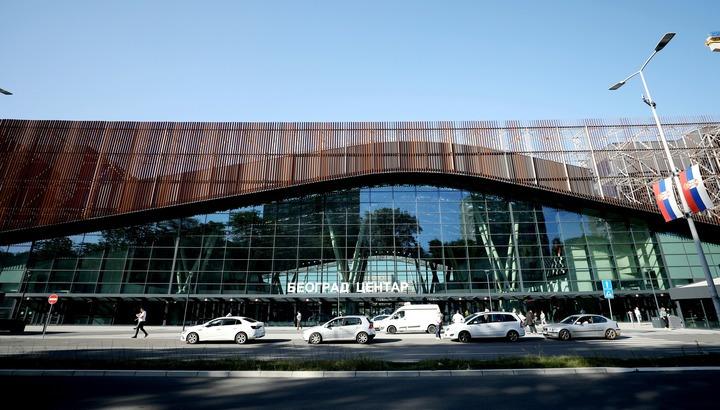BUDAPEST, Oct. 9 (Xinhua) -- Hungary has reached a major milestone in the construction of the Budapest-Belgrade railway, Minister of Foreign Affairs and Trade Peter Szijjarto said on Wednesday.
The Budapest-Belgrade railway is a flagship project under the Belt and Road Initiative.
"The laying of the final rail outside Budapest today signifies the conclusion of open track construction," Szijjarto said during a ceremony in Kiskoros, 120 km south of Budapest. He added: "This project has reached one of its most important milestones."
"V-Hid and its partners have constructed a 150-kilometer dual-track line, which involves laying roughly 300 kilometers of tracks," the minister explained.
Although work continues at various stations, and the installation of signaling systems is still ongoing, the construction of overhead lines has already started. "By the end of next year, the Hungarian section of the Budapest-Belgrade railway will be fully completed, ushering in a new era for rail transportation between Budapest and Belgrade," Szijjarto said.
Despite the current global challenges, there are opportunities for Hungary, he emphasized, particularly in strengthening cooperation between East and West.
"We believe in enhancing ties between East and West. Those who consider this a threat would prefer to isolate these two worlds," he said.
Hungary's position as a key meeting point between East and West has yielded significant economic benefits in recent years, Szijjarto underlined.
The Budapest-Belgrade railway is seen as further proof of Hungary's strategic importance in global trade. It will not only strengthen ties with neighboring Serbia, but will also provide the most competitive freight route for goods arriving from the Far East at Southern European ports, destined for Western Europe.
Szijjarto recalled that annual trade between the European Union and China amounts to approximately 800 billion euros (876 billion U.S. dollars), and this figure is even larger when including East Asia as a whole.
He also underlined the project's positive impact on suburban rail services in Budapest, and its potential to further shift freight and passenger transport to rail, which is the most environmentally friendly mode of transportation.
He described the Budapest-Belgrade railway as "the largest and most complex rail development in Hungary's history."
"This project is an example of common sense prevailing over ideological and dogmatic constraints," Szijjarto said.




 A single purchase
A single purchase









